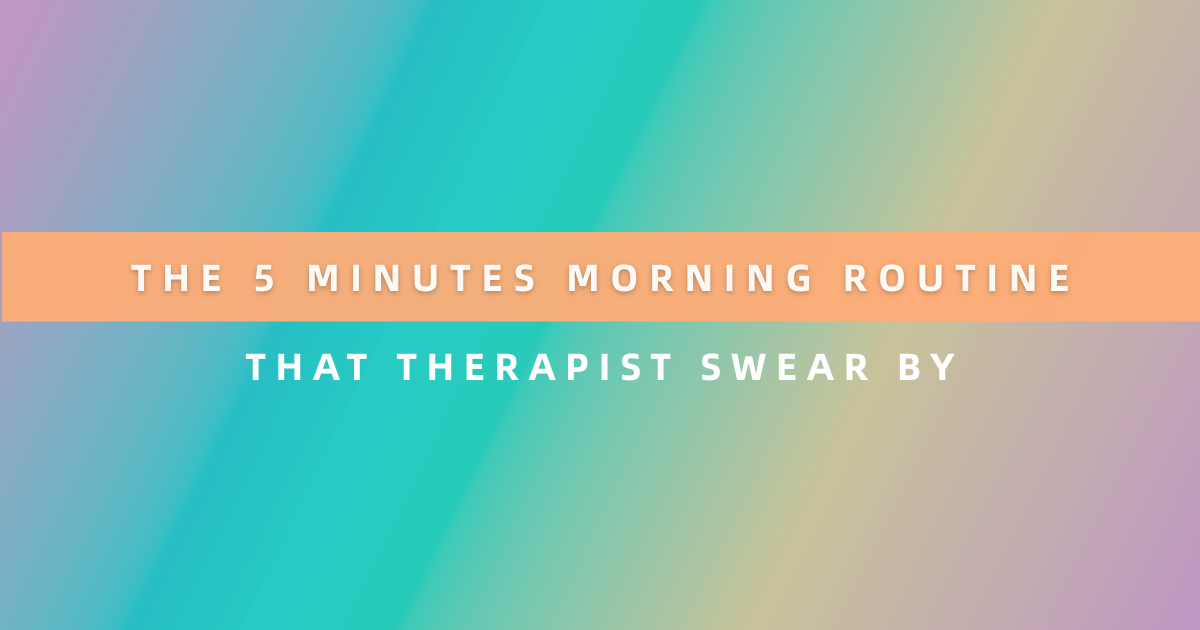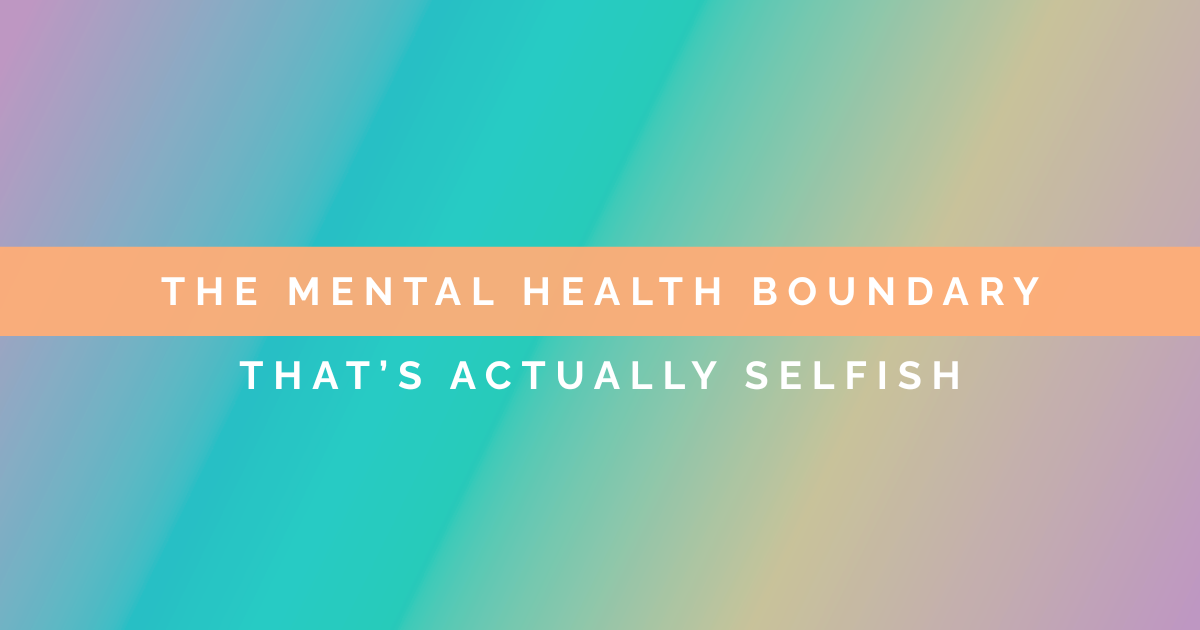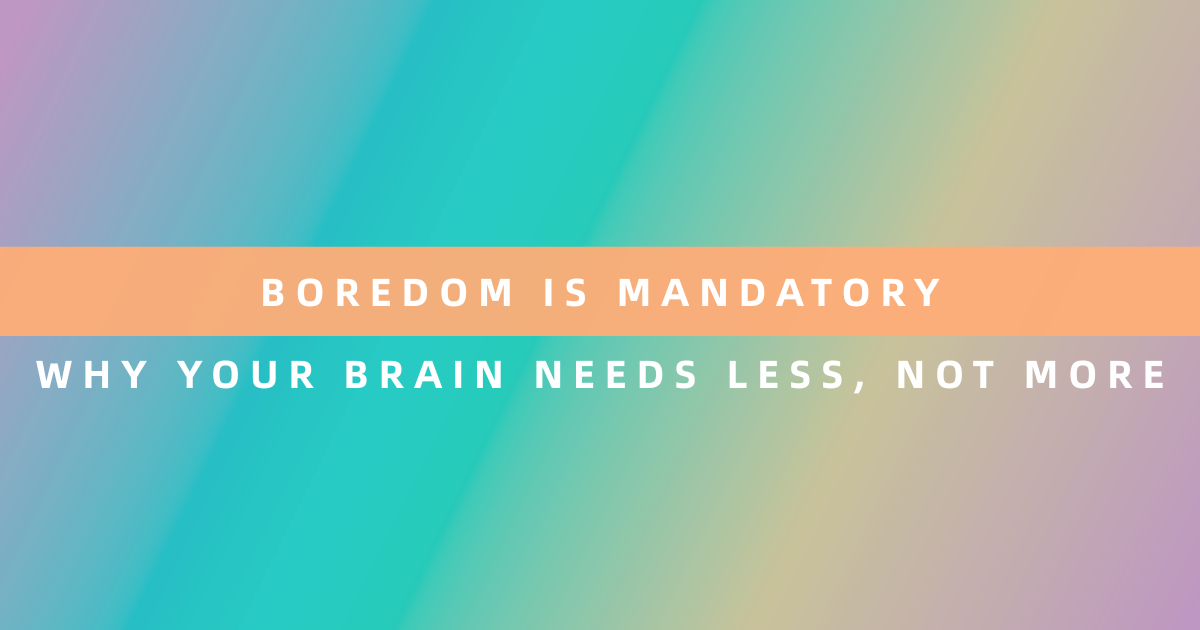Each morning brings its wave of emails, demands, and external pressures. But right there, before it all takes over, lies a small, powerful window. Just five minutes. For many mental health professionals who genuinely understand the impact of morning routine, these few minutes are what truly shape the entire day.
This isn’t about the harsh jolt of an alarm or mindlessly scrolling through your phone. Instead, it’s about a deliberate practice that steadies you, clears your thoughts, and prepares your mind for whatever lies ahead. You aren’t adding another task to an already full schedule. You’re simply transforming the time you already spend into a solid investment in your mental well-being.
What if those hazy, rushed first moments of waking could become your reliable source for emotional strength, clear thinking, and lasting energy throughout the day?
Why Your Morning Matters More Than You Think
The critical period immediately following awakening has a profound influence on daily psychological and physiological states, a concept long recognized by mental health professionals and increasingly substantiated by neuroscientific research. This transition, during which the brain shifts from various sleep stages to full wakefulness, involves significant neurochemical and electrophysiological changes, including the Cortisol Awakening Response (CAR), which is a natural surge in cortisol that prepares the body for daily demands. [1][2]
During this crucial window, the brain exhibits heightened plasticity and receptivity to input. Intentionally structuring the initial minutes of the day, rather than engaging in reactive behaviors, has been shown to activate neural pathways associated with executive functions such as planning, self-regulation, and goal-directed behavior within the prefrontal cortex (Davidson et al., 2004; Goldin et al., 2008). This deliberate engagement can foster a greater sense of control, purpose, and overall well-being by strengthening neural connections related to positive cognitive and emotional states.
Conversely, immediate exposure to potential stressors, such as consuming news, engaging with social media, or mentally rehearsing extensive to-do lists, can dysregulate the natural stress response. This can lead to an exacerbated cortisol response and prolonged activation of the sympathetic nervous system (fight-or-flight), potentially inhibiting the optimal functioning of the prefrontal cortex and contributing to sustained feelings of anxiety, reduced focus, and cognitive overload that can persist for several hours (Glikson et al., 2021; Verkuil et al., 2010). Therefore, the early morning period represents a significant opportunity for shaping daily cognitive and emotional trajectories.
The Cortisol Connection
Your body naturally releases cortisol upon waking, part of the circadian rhythm that helps you feel alert. However, how you spend those first minutes determines whether this cortisol works for you or against you. A mindful morning routine helps regulate this cortisol awakening response, preventing the spike that leads to morning anxiety and afternoon crashes. Discover expert-backed articles and practical strategies to enhance your mental clarity and resilience throughout the day.
Research also shows that individuals who stick to a consistent morning routine experience significant benefits for their mental well-being and daily performance. While exact numbers of improved focus aren’t typically given as universal figures from single studies, the positive trends behind these claims are very well-documented.
Here’s what the evidence broadly supports:
- Reduced Anxiety and Stress: Starting your day with intentional practices, like mindfulness or light activity, is strongly linked to lower stress hormone levels and a notable drop in anxiety.
- Sustained Focus: Avoiding immediate distractions and engaging in focused, personal activities in the morning can genuinely enhance your attention span and cognitive function. This can lead to improved concentration that lasts for hours.
- Better Emotional Regulation: Morning routines that include self-awareness practices, such as journaling or checking in with your feelings, help you manage your moods and emotional responses more effectively throughout the day.
- Sharpened Decision-Making: By cutting down on “decision fatigue” early on, a structured morning can preserve your mental energy. This allows for clearer thinking and more effective choices when you face complex decisions later in the day.
- Increased Resilience: A calm, intentional start builds a psychological reserve. This prepares you to handle unexpected challenges and setbacks more effectively, fostering greater adaptability and emotional strength.
The Compound Effect
Like interest in a savings account, the benefits of a morning routine compound over time. Each morning you practice builds upon the last, strengthening neural pathways and making positive states more accessible. Therapists often describe this as “emotional muscle memory”,the more you practice starting your day with calm intention, the more naturally it comes. [3]
The Science Behind Morning Routines and Mental Health
Understanding why morning routines work so powerfully requires a brief exploration of neuroscience and psychology. Our brains are remarkably plastic, constantly forming new connections in response to repeated behaviors. Morning routines leverage this neuroplasticity to create beneficial default patterns. [4]
The Default Mode Network
When we wake without intention, our brains often default to what researchers call the “default mode network”,a state associated with rumination, worry, and self-referential thinking. While this network serves important functions, getting stuck here upon waking can set a tone of anxiety and overwhelm.[5]
A structured morning routine interrupts this default pattern, engaging what’s called the “task-positive network” instead. This network is associated with present-moment awareness, goal-directed behavior, and emotional regulation.
Vagus Nerve Activation
Many components of effective morning routines specifically target the vagus nerve, our body’s primary pathway for activating the parasympathetic nervous system (rest and digest mode). Deep breathing, gentle movement, and even cold water on the face stimulate this nerve, signaling safety to your entire system and reducing baseline anxiety.
Psychological Anchoring
From a psychological perspective, morning routines serve as powerful anchors. They create a sense of control and predictability in an often chaotic world. This perceived control, even over just five minutes, cascades into greater confidence and reduced anxiety when facing the day’s uncertainties.
The 5-Minute Routine Breakdown
Here’s the exact routine that mental health professionals recommend, tested across thousands of clients and refined for maximum impact with minimum time:
Minute 1: Conscious Breathing (The Reset)
Before opening your eyes or reaching for your phone:
- – Take 3 slow, deep breaths, inhaling for 4 counts, holding briefly, and exhaling slowly for a longer count, like 6.
- – Place one hand on your chest, one on your belly, and focus on breathing deeply into your belly hand.
- – With each exhale, consciously release any tension you feel.
Why it works: This practice activates your parasympathetic nervous system, which helps lower stress hormones like cortisol and increases oxygen flow to your brain. [7] Controlled breathing techniques like this are clinically shown to reduce anxiety and improve heart rate variability, a key indicator of your body’s ability to handle stress.
Minute 2: Gentle Movement (The Awakening)
Without leaving your bed:
- – Gently stretch your arms overhead, lengthening your whole body.
- – Slowly roll your ankles and wrists.
- – Turn your head gently side to side.
- – If you’re able, bring your knees to your chest for a gentle spinal stretch.
- – Sit up slowly, taking another deep breath as you move.
Why it works: These gentle movements increase blood flow, release muscle tension from sleep, and signal to your body that it’s time to transition to wakefulness. This approach promotes alertness without triggering stress responses.
Minute 3: Intention Setting (The Focus)
With feet on the floor but before standing:
- – Ask yourself: “What quality do I want to embody today?” Focus on who you want to be, not just what you need to do.
- – Choose one word that embodies this quality: Calm, Present, Confident, Patient, Curious, or something similar.
- – Repeat this word to yourself three times, truly imagining how it feels to embody this quality.
- – Visualize one specific moment today when you might especially need to embody this quality.
Why it works: This practice, rooted in cognitive behavioral therapy and positive psychology, primes your brain to notice opportunities to embody your chosen quality throughout the day. It effectively shifts your focus from external demands to your internal resources.
Minute 4: Gratitude Practice (The Perspective)
Standing or sitting comfortably:
- – Name 3 things you’re grateful for, but with a twist:
- One from yesterday (a specific moment or experience)
- One about today (something you’re looking forward to)
- One about yourself a personal quality or recent achievement)
- – Take a moment to truly feel the gratitude in your body, not just think about it.
Why it works: This isn’t about forced positivity; it’s a powerful way to influence your brain’s chemistry. Gratitude practices are known to increase activity in brain areas that regulate stress and produce feel-good chemicals like dopamine. This structured approach helps keep the practice fresh and engaging.
Minute 5: Hydration and Transition (The Bridge)
As you move into your day:
- – Drink a full glass of water (it helps to have it prepared the night before).
- – As you drink, mentally rehearse your very first transition of the day, such as stepping into the shower or pouring your coffee.
- – Take one final deep, intentional breath.
- – Optional: Look at yourself in the mirror and offer a kind word or a smile.
Why it works: Hydration jumpstarts your metabolism and cognitive function and helps your brain wake up. [6]
Make It Work for Your Life
The beauty of this routine lies in its adaptability. While the structure remains consistent, the specifics can shift based on your needs:
For Night Shift Workers
- – Use the routine whenever you wake, regardless of time
- – Consider blackout curtains to create a “morning” environment
- – Add an extra minute of breathing if transitioning from night work
For Parents with Young Children
- – Practice the breathing before your children wake (set the alarm 5 minutes earlier)
- – Include children in the movement and gratitude portions
- – Model emotional regulation from the day’s start
For Those with Chronic Pain
- – Modify movements to the comfort level
- – Focus on areas of tension
- – Gratitude might include body parts that are working well
For Depression or Low Motivation
- – Start with just breathing if 5 minutes feels overwhelming
- – Use gentler movement,even wiggling fingers counts
- – Set micro-intentions like “I will shower” rather than grand qualities
For Anxiety
- – Extend breathing to 2 minutes if needed
- – Choose calming intentions like “peaceful” or “grounded.”
- – Practice gratitude for safety and present-moment comforts
Common Morning Mistakes That Sabotage Your Day
Understanding what not to do is as important as knowing what to do:
The Phone Trap
Checking your phone right away floods your brain with information that can spike cortisol, our stress hormone. Each notification, email, or news headline activates stress responses before you’ve had a chance to build any mental resilience for the day. Many mental health professionals strongly recommend waiting at least 30 minutes after your morning routine before you engage with any devices.
The Snooze Button Cycle
Hitting the snooze button actually fragments your sleep cycles without giving you any real, restorative rest. It essentially trains your brain to ignore your first alarm, often creating a pattern where you start the day feeling defeated. If you need to, try placing your alarm across the room, committing to getting up and starting your routine as soon as it goes off.
The Racing Start
Jumping straight into productivity might feel efficient in the moment, but it prevents your nervous system from properly transitioning from sleep to full wakefulness. This approach can often lead to energy crashes in the afternoon and contribute to cumulative stress building up throughout your week.
The Perfection Trap
Missing one part of your routine doesn’t undo all its benefits. Therapists consistently emphasize progress over perfection when it comes to mental well-being practices. Even just three minutes is far better than none, and simply focusing on your breathing can provide significant value.
The Negative Narrative
Many people wake up with self-critical thoughts or immediately start listing their worries. Without actively stepping in to change this, these thoughts can set a negative filter through which you process all of your day’s experiences.
Beyond the First Five Minutes
While the core routine takes just five minutes, its effects ripple throughout your morning and day:
The Next 25 Minutes
After your routine, maintain momentum with:
- – Mindful showering (feeling water temperature, noticing sensations)
- – Preparing breakfast without multitasking
- – Listening to calming music or nature sounds
- – Avoiding news or social media
Creating Environmental Cues
Support your routine by:
- – Placing water by your bedside each night
- – Using a gentle wake light or sunrise alarm
- – Keeping phones charging outside the bedroom
- – Creating a simple morning playlist timed to 5 minutes
Weekly Refinements
Every Sunday, reflect on:
- – Which intentions served you best
- – What gratitudes felt most genuine
- – Any adjustments needed for the coming week
- – Celebrating your consistency
When Life Gets in the Way
Real life rarely follows perfect routines. Here’s how to maintain the practice through challenges:
Travel Adjustments
- – Use breathing and intention setting even in hotel rooms
- – Adapt movement to airplane seats or small spaces
- – Focus on gratitude for journey experiences
Illness Modifications
- – Gentle breathing remains beneficial when sick
- – Modify movement to simple hand stretches
- – Set intentions for healing and rest
Crisis Situations
- – During acute stress, even 30 seconds of breathing helps
- – Choose stabilizing intentions like “steady” or “capable”
- – Express gratitude for basic supports and resources
Time Crunches
- – Prioritize breathing and intention (2 minutes minimum)
- – Practice gratitude during other activities (showering, commuting)
- – Remember: imperfect practice beats perfect avoidance
Track Your Progress
Mental health professionals recommend tracking your routine’s impact to maintain motivation:
Weekly Check-ins
Note changes in:
- – Morning mood ratings (1-10)
- – Energy levels throughout the day
- – Stress response to typical triggers
- – Sleep quality
- – Overall life satisfaction
Monthly Assessments
Review:
- – Consistency patterns
- – Most helpful routine elements
- – Challenges faced and overcome
- – Unexpected benefits noticed
- – Adjustments needed
Celebrating Milestones
Acknowledge:
- – First full week completed
- – Bouncing back after missed days
- – Noticing automatic habit formation
- – Positive feedback from others
- – Internal shifts in self-perception
The transformation doesn’t happen overnight, but morning by morning, breath by breath, you’re building a more resilient brain, clearer mind, and stronger sense of well-being. This isn’t about becoming a morning person or adding more to your plate. It’s about claiming the first five minutes of your day as dedicated time for your mental health.
Therapists recommend a morning routine because it’s effective. In a world that often feels chaotic and demanding, starting your day with just five minutes of intentional self-care becomes a profound act of self-respect.
Your morning routine serves as a daily reminder: you genuinely have the power to influence your mental state. You can choose calm over chaos, intention over reaction, and gratitude over worry. Five minutes might seem insignificant, but mental health professionals know better. They’ve seen these five minutes truly change lives, one morning at a time.
Ready to strengthen your mornings and track the positive shifts in your mental health? Discover how Theryo’s daily check-ins and mood tracking empower you to stick with your routine and visualize its impact on your well-being.
Frequently Asked Questions
What if I’m not a morning person? Will this routine still work for me?
Yes, this routine works regardless of whether you’re naturally a morning person. It’s designed to ease anyone into wakefulness gently, without requiring high energy or enthusiasm. The breathing and gentle movement help non-morning people transition more comfortably into their day. Start with just the breathing portion if needed and gradually add elements as they feel manageable.
Can I do this routine if I have to wake up at different times each day?
Absolutely. The routine’s effectiveness comes from consistency of practice, not consistency of timing. Whether you wake at 5 AM or noon, the five-minute structure remains the same. Your nervous system benefits from the predictable sequence regardless of when it occurs. Shift workers and parents with varying schedules successfully use this routine.
What if I share a bedroom and don’t want to disturb my partner?
The routine is designed to be quiet and contained. The breathing and intention setting are silent, movement can be done gently in bed, and gratitude practice requires no speaking aloud. Many couples find that practicing together strengthens their relationship, but it works perfectly as a solo, silent practice too.
How long before I notice actual changes in my mental health?
Most people report feeling immediate benefits in terms of morning calmness and clarity. Lasting changes in overall anxiety, mood, and resilience typically become noticeable after 7-10 days of consistent practice. Neuroplastic changes (rewiring of brain patterns) show measurable differences after about 21 days of regular practice.
Is there scientific evidence that such a short routine makes a difference?
Yes, extensive research supports brief morning interventions. Studies show that even 2-3 minutes of controlled breathing significantly reduces cortisol levels. Gratitude practices as short as 2 minutes create measurable changes in brain activity. The combination of elements in this routine has been validated across multiple studies on stress reduction and emotional regulation.
What if I forget to prepare water the night before?
While having water ready is ideal, don’t let this derail your routine. You can drink water after completing the first four minutes, or even skip it temporarily. The hydration element supports the routine but isn’t essential for its mental health benefits. Focus on progress, not perfection.
Can I customize the routine to fit my specific mental health needs?
Definitely. The framework is flexible. Those with anxiety might extend the breathing portion. People managing depression might emphasize the movement component. ADHD individuals might add a sixth minute for planning their first task. The key is maintaining the basic structure while adapting specifics to your needs.
Should I still do this routine on weekends and holidays?
Consistency across all days provides the best results, as your nervous system doesn’t distinguish between weekdays and weekends. However, you might allow yourself a gentler pace on non-work days. The routine can help maintain healthy sleep schedules on weekends by providing a consistent wake-up anchor.
What if I miss a day or even several days?
Missing days don’t erase previous progress. Neural pathways you’ve been building remain accessible. Simply restart without judgment or attempting to “make up” missed sessions. Therapists see greater success in clients who practice self-compassion around lapses than those who adopt all-or-nothing thinking.
Can children do this routine?
Yes, with age-appropriate modifications. Young children enjoy the movement and can practice simple gratitude. Teenagers benefit from the full routine, especially given their typically disrupted sleep patterns and high stress levels. Modeling this routine teaches children lifelong mental health skills.
How does this routine interact with meditation or other morning practices?
This routine complements other practices beautifully. It can serve as preparation for longer meditation, enhance prayer practices, or precede exercise. Think of it as a foundational practice that makes other wellness activities more effective by starting from a regulated nervous system state.
What if I wake up in a panic or with high anxiety?
On high-anxiety mornings, focus primarily on the breathing element, extending it as needed. Use counting to anchor your mind. Choose stabilizing intentions like “safe” or “grounded.” The routine is especially valuable on difficult mornings, providing a structured pathway back to calm rather than spiraling into panic.
References
[1] https://www.sciencedirect.com/topics/neuroscience/cortisol-awakening-response
[2]https://en.wikipedia.org/wiki/Cortisol_awakening_response
[3]https://www.psychologytoday.com/us/blog/the-new-brain/202106/how-does-muscle-memory-work
[4]https://www.ncbi.nlm.nih.gov/books/NBK557811/
[5]https://en.wikipedia.org/wiki/Default_mode_network
[6] https://www.healthline.com/nutrition/drinking-water-in-the-morning







